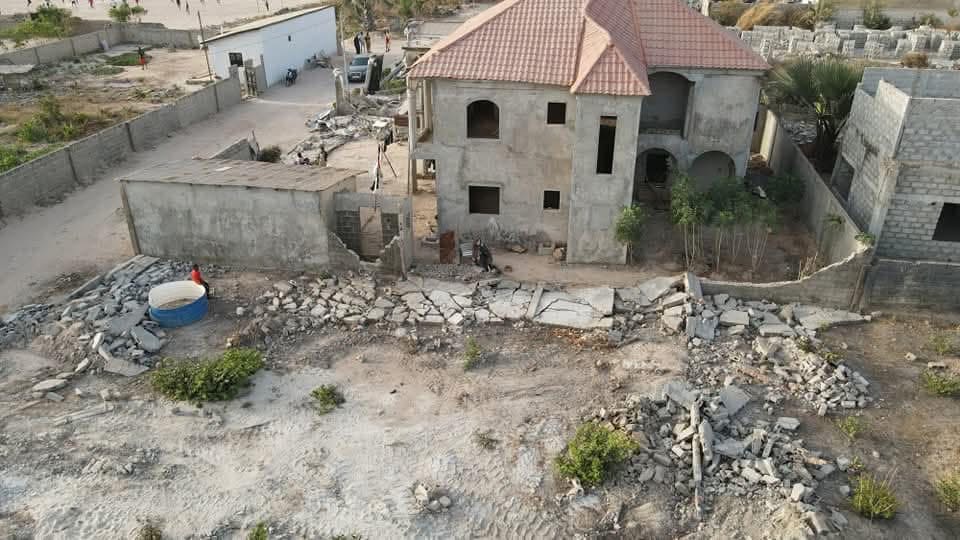
Mariama Bojang, a single mother of seven, is among dozens of Salaji property owners whose homes were bulldozed by the Gambian government. Her hope of building a home for her family has now been shattered after years of struggle to erect the house.
The April demolition of homes has drawn widespread criticism among Gambians, who described the government’s action as “reckless and wicked.” However, the Gambian government defended the demolition, stating that the homes were illegally built on public land without due process.
For Mariama Bojang, who now lives under the care of her brother in Sukuta with her seven children, the demolition was “unjust” and “torturous.” She is demanding justice from the government for destroying their home.
She had been building the now-demolished house for four years, scraping together funds under extremely difficult circumstances to buy building materials and pay for construction—while also supporting her children through her small petty trade business.
Like many parent, her dream was to own a home for her children before she dies. But that dream was crushed the very day government-sanctioned bulldozers levelled the homes.
While at home with her family, she was informed of the tragic news. In shock, she rushed to the scene with two of her children, only to find that their nearly completed home had been reduced to rubble.
“We cried until we arrived back home because of the shock,” she says, her voice trembling.
Ms. Bojang is still reeling from the trauma of the demolition after painfully saving and investing thousands of dalasis into the project.
“I’ve been building this house for four years now, and I still haven’t finished it. It’s not easy to be a single mother. I have my seven kids and also take care of my late sister’s children. It’s so difficult,” she adds.
While the Department of Physical Planning claims that homeowners were served with a series of legal eviction notices, Ms. Bojang refutes those claims as “false and untrue,” stating, “I was not served any court order.”
She has invested close to one million dalasis and is now demanding accountability from the Barrow administration.
“I spent 920,000 dalasis. My brother, Momodou Bojang, also contributed to the construction of my house, he would buy truckloads of sand. How can I recover the money I spent on building this house? I have a large family, and this is too painful,” she says.
Human rights activist Madi Jobarteh said the demolition highlights broader issues of inequality and exclusion in Gambian society.
“There is too much inequality in our society,” he says, adding “the lack and denial of opportunities that deprive people of development are persistent and systemic.”
Referring to Ms Bojang’s case, he adds: “Right now, she feels she has nothing to live for. She sees no value in being Gambian, even in being human, because her right to shelter, which is a basic part of development, has been denied.”
By Adama Makasuba










Recent Comments